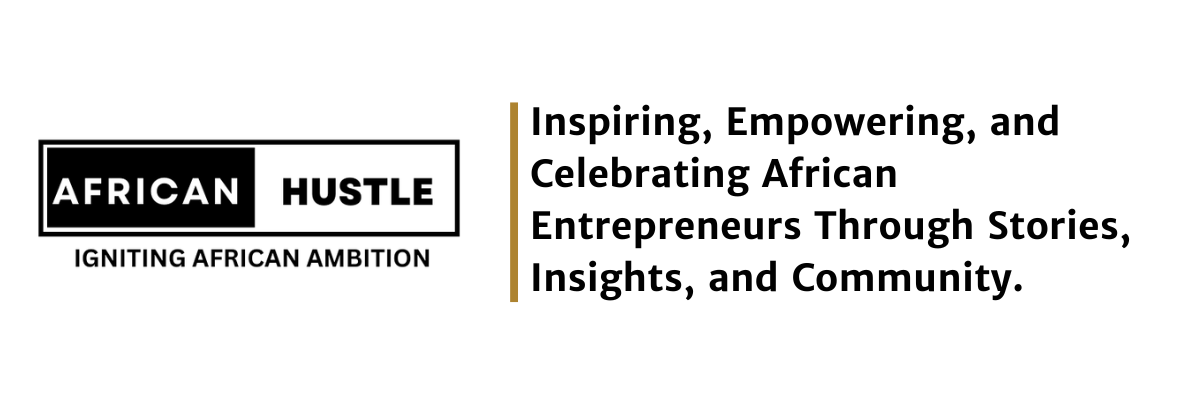
Welcome to African Hustle! Your bi-weekly dose of inspiration and smart insights into African entrepreneurship — featuring real stories about tech, culture, startups, founders, and innovations shaping the future of the continent.
Did You Know
Video content accounts for approximately 82% of all internet traffic. Meanwhile, over 1 billion people worldwide have some form of visual impairment, and around 1.5 billion have varying degrees of hearing loss. So nearly half of us face challenges in fully experiencing video-based content on the internet.
Feature Story
Recently, I made a post that stirred more than I expected.
It was a simple thought, a reflection on leadership, power, and the culture of silence that often accompanies them.
Within hours, my inbox flooded. Some praised my courage. Others warned me with concern to be careful. A few asked whether I was ready to risk it all for a political view.
There must be something wrong with our politics if there’s a cost to having an opinion.
We’ve built societies where thinking out loud, about leadership, governance, or accountability, feels like a criminal act. Where entrepreneurs only whisper about policies that shape their livelihoods, afraid that too much honesty might get them blacklisted from opportunities.
In a recent Afropolitan podcast featuring Vusi Thembekwayo, Eche Emele, and Chika Uwazie, Vusi said something poetic!
Simba is still waiting for Mufasa to die.
That hit different.
We have a problem of leadership that refuses to evolve. Of systems that reward loyalty over innovation. Of power that doesn’t rotate, even though it’s in everyone’s best interests for it to do so.
Cameroon elected a 92-year-old president, another Mufasa, where there should be a Simba.
Across the continent, we see capable Simbas, young Africans building apps, driving fintech revolutions, scaling agritech startups, and designing creative enterprises that transform communities.
Yet, politically and institutionally, the old Mufasas cling to power, terrified of handing over the mantle.
We have all somehow conveniently forgotten that Mufasa’s legacy lay in preparing Simba to lead after him.
Growing up, it was impressed upon us not to overstay our welcome. But that lesson never seems to have been taught to most of our business and political leaders.
Or it’s one we are all too eager to forget when we get into positions of power and influence.
There is a tragedy that comes with Mufasa overstaying his welcome.
The pride stops hunting collectively. Innovation halts. The ecosystem stagnates. People lose faith that leadership can renew itself, and they start romanticising Scar.
I’ve spoken to many young Africans who long for the freedom of their chains. There’s a quiet yearning for an era most never lived through, a bittersweet longing for the lost order of colonialism and apartheid.
In hushed tones, some recall currencies that held value, systems that functioned, and effort that was rewarded even within confinement. It’s a haunting reflection of how deeply today’s disillusionment runs when yesterday’s oppression begins to look, to some, like development.
Mufasa’s failure humanises everything bad about Scar.
The Entrepreneurial Cost of Political Stagnation
Entrepreneurs need to understand the value of timing.
You don’t hold on to an outdated product; you pivot.
You don’t cling to a leadership model that doesn’t serve your customers; you innovate.
You don’t suppress fresh thinkers, you hire them. Mark Zuckerberg was on a $1 billion hiring spree for AI talent. As any great leader should do, he does not see new ideas and talent as competition.
Yet, both our business and political systems too often operate like monopolies.
There is a cost to this.
Capital flight: Investors seek predictable environments. Where leadership is uncertain or erratic, good money flees.
Brain drain: The Simbas, youth with ideas, leave to chase opportunity elsewhere.
Policy paralysis: Startups depend on clarity, tax regimes, trade policy, and digital regulation. But when leadership is locked in old frameworks, there is no reform.
The result is an economy where entrepreneurs must build despite the state, not because of it. When politics doesn’t evolve, entrepreneurship becomes an act of endurance instead of empowerment.
Ubukhosi Ngamazolo
Ubukhosi ngamazolo.
Ushe madzoro.
Leadership is best when it occurs in turns.
You build, you grow, you hand over. That’s how generational businesses are created.
The best founders don’t cling; they scale themselves out of the day-to-day so others can build upon their legacy.
But in politics, too many leaders see succession as betrayal. They personalise power. And in doing so, they block renewal for the entire ecosystem.
That’s why young Africans grow up seeing political leadership as a closed club.
When Silence Becomes a Business Strategy
Somewhere along the way, someone told us that entrepreneurs should stay politically neutral.
That to have a political opinion risks your funding, contracts and connections.
And so we censor ourselves.
We pretend governance doesn’t affect business.
We talk about innovation without talking about infrastructure.
We celebrate entrepreneurship while ignoring the policies that determine who gets to start and who doesn’t.
But that silence is costing us.
Because when entrepreneurs withdraw from civic discourse, politics becomes the playground of those who neither build nor innovate.
And when politics loses its builders, the result is inefficiency, corruption, and decay.
We need to tell our youth that it’s okay to dream of being Presidents.
Entrepreneurship and politics are not parallel. The skills that make great founders, vision, risk-taking, accountability, and innovation, are the same skills that make great leaders.
Africa needs Simbas in politics, too, people who’ve built, failed, learned, and understand the discipline of results.
The Economics of Power Rotation
There’s data to back this up.
A study across multiple African economies found that countries with predictable political transitions tend to have 15–20% higher rates of SME growth over a decade.
Nations with stable leadership handovers attract 30% more foreign direct investment and generate higher employment elasticity per dollar invested.
When founders know that tomorrow’s rules won’t change overnight, that taxes, trade policy, or foreign exchange regulations will remain consistent, they build long-term.
When politics is erratic, founders think short-term. They hoard cash. They avoid scaling. They become survivalists.
That’s why the question, “Can African entrepreneurs afford to stay politically neutral?” isn’t rhetorical but existential.
What Entrepreneurs Can Teach Politicians
Entrepreneurs have a lot to teach politics about leadership renewal and accountability.
1. Innovation thrives on turnover.
In startups, if you occupy the same role for too long without evolution, you become the bottleneck. The same holds in politics. Leadership needs rotation, not because the old are incapable, but because the new see things differently.
2. Data beats rhetoric.
Entrepreneurs measure success with metrics such as revenue, reach, and retention. Politicians often rely on applause and propaganda. If governance adopted the same obsession with KPIs, we’d see better service delivery and faster reforms.
3. Competition drives excellence.
Entrepreneurs don’t fear rivals; they use them as benchmarks. Yet, in politics, competition is treated as an existential threat. This mindset breeds fear, not innovation. A healthy democracy needs the same open competition that fuels markets.
4. Scaling requires decentralisation.
Founders delegate to grow. Politics must decentralise to scale impact. Over-centralisation of power, resources, and decision-making kills innovation both in startups and in states.
5. Exit gracefully.
The best founders know when to exit to allow new energy, new strategy, and new vision.
The Courage to Speak
Every entrepreneur in Africa today is already political, whether they admit it or not.
When you challenge unemployment through job creation, you’re engaging policy.
When you digitise informal trade, you’re reforming economies.
When you teach others financial literacy, you’re rewriting systems of power.
So why be afraid to speak about the structures that shape our work?
The real risk isn’t in speaking. The real risk is in silence because silence sustains systems that choke innovation.
Africa’s next great leap will come from a generation of builders who dare to have an opinion.
The African future depends on a mindset shift from viewing politics as dangerous to seeing it as necessary. From thinking of leadership as power to treating it as service. From fearing opinion to embracing it as the spark of innovation.
We cannot keep waiting for Mufasa to die. The future belongs to the Simbas willing to step up not just in business, but in governance.
Because the same courage it takes to start a business in Africa is the courage it takes to build a better nation.
And maybe, just maybe, when we start to believe that entrepreneurship and leadership are two sides of the same coin, we’ll stop paying a cost for opinions.
Quote of the Week
The government consists of a gang of men exactly like you and me. They have, taking one with another, no special talent for the business of government; they have only a talent for getting and holding office.
Practical Tools
SurveyMonkey
SurveyMonkey is a web-based tool that helps you launch surveys online.
These can help you conduct in-depth research about a specific market, gather employee or customer feedback, and launch quick polls to make better, customer-centric decisions.
How this tool enables your start-up:
SurveyMonkey offers quality survey templates, so if you’re looking for a great survey covering a general topic, you can use their templates to save you time. The first level of SurveyMonkey is free, but if you need more options, then opt for the paid editions.
Hustler’s Cheat Codes
Answer emails fast. Show up on time. Do what you said. Keep small promises. Remember the details.
Everyone else is flaky, they’re late, they forget, they vanish.
So when you actually follow through, you stand out.
You’re not a genius, you’re just reliable.
Reliability builds more trust than talent ever will.
Community Billboard
Jim Leech Mastercard Foundation Fellowship on Entrepreneurship

Application Deadline: December 15, 2025, at 12:59 pm ET.
The Jim Leech Mastercard Foundation Fellowship on Entrepreneurship gives African students and recent graduates the opportunity to access training, resources, financial support and a network of mentors to develop their entrepreneurial skills and start building their own venture. The 8-month program develops the exceptional entrepreneurial skillset and mindset of leaders to drive social and financial impact.
Proverb of the Week
A kì í wo ago aláago ṣiṣẹ́.
This is a Yoruba proverb that translates to, "Do not carry out your duties using someone else's clock.”
Enjoyed this post? Share it with someone who might find it helpful and encourage them to subscribe!
If we missed something, we’d love to hear from you; reply and let us know what insights you want us to dive into next.
And if this email was forwarded to you, you can sign up here!

